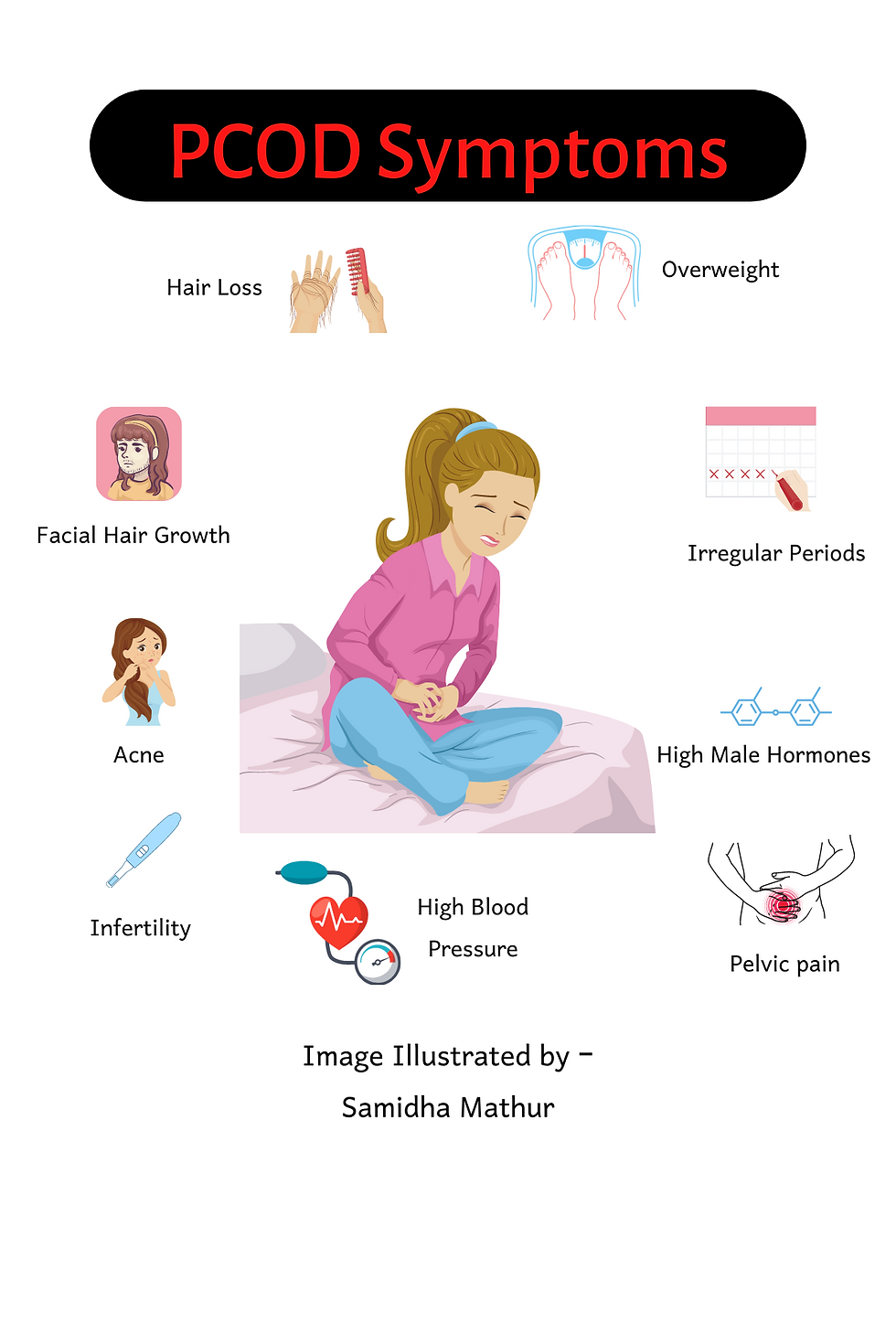Polycystic Ovarian Disease (PCOD), also known as Polycystic Ovarian Syndrome (PCOS), affects a woman's health to a large extent. But what is the treatment for PCOD? To learn more, read this article.

Table of Contents -
Polycystic Ovarian Disease (PCOD) is also known as Polycystic Ovary Syndrome (PCOS). It is a condition that affects nearly 5% to 10% of women aged 12 to 45 years. PCOD is the most common endocrine disorder in females caused due to hormonal imbalance leading to irregular periods (menstrual cycle) and no ovulation. Furthermore, it drives to an abnormal growth of facial and body hair.
If PCOD is left untreated, it can cause several other health problems like insulin resistance diabetes, obesity, and high cholesterol.
What causes Polycystic Ovarian Disease (PCOD)?
PCOD, also known as Polycystic Ovary Syndrome (PCOS), is a common health problem caused due to the imbalance in reproductive hormones. Normally, female ovaries secrete female reproductive hormones majorly, oestrogen and pregestorone, and less of male reproductive hormones, androgen. This hormonal balance regulates the normal development of eggs during each menstrual cycle. But when this hormone secretion gets imbalanced, i.e., androgen (male hormone) is secreted more, ovulation gets disturbed. Eggs do not get matured and do not released from the ovaries. This condition leads to the formation of small cysts in the ovary, making them polycystic ovaries. (Refer image 1).
Due to the excess secretion of male reproductive hormones, women gets pimples and growth of hair on their chest, body and face.
PCOD is also a kind of hereditary disease. So, the chances are higher if any other woman in family have PCOD / PCOS.
What are the Symptoms of PCOD?
PCOD starts showing its presence around the time of the first period of a woman. However, many women discover these symptoms once they start gaining unusual weight or they find difficulty in getting pregnant.
Some of the common symptoms of PCOD are:
Irregular periods - Women with PCOD/PCOS experience irregular periods, i.e., fewer than eight menstrual cycles in a year, or none at all.
Heavy Bleeding - In PCOD/PCOS, the uterine lining builds up for a longer time leading to heavy bleeding.
Hair Growth - Due to the excess secretion of male reproductive hormone, women with PCOD gets more hair on their face and body.
Acne - Hormonal imbalance makes skin oilier causing more acne and breakouts.
Weight gain - Maximum number of women with PCOD put on excess weight.
Headaches - Hormonal imbalance triggers headaches in some women.
What is the Treatment of PCOD?
There is no 100 per cent cure for PCOD, but still you can manage its symptoms. Depending upon the symptoms, doctor can plan the treatment of PCOD. The common medical treatments for PCOD are:
Birth Control Pills - Doctors usually prescribe birth control pills to help and regulate the ovulation cycle. Birth control pills can restore normal balance in hormones. It regulates ovulation and protects against endometrical cancer.
Surgery - If medications don't work, surgery is advised. Talk to your doctor about the surgery methods available as per your symptoms of PCOD.
Pregnancy and PCOD
PCOD interrupts the normal process of getting pregnant, still with the help of proper medications and guidance from the doctor, pregnancy can be expected. However, the patient needs to be highly cautious during the entire gestational period.
Women with PCOD/PCOS have higher risk of delivering baby prematurely. The other pregnancy complications like gestational diabetes, miscarriage, and high blood pressure are also associated with the same.
Women with PCOD can get pregnant with the help of following fertility treatments that improve ovulation. At the same time, maintaining of healthy weight and blood sugar levels are also suggested.








Comments